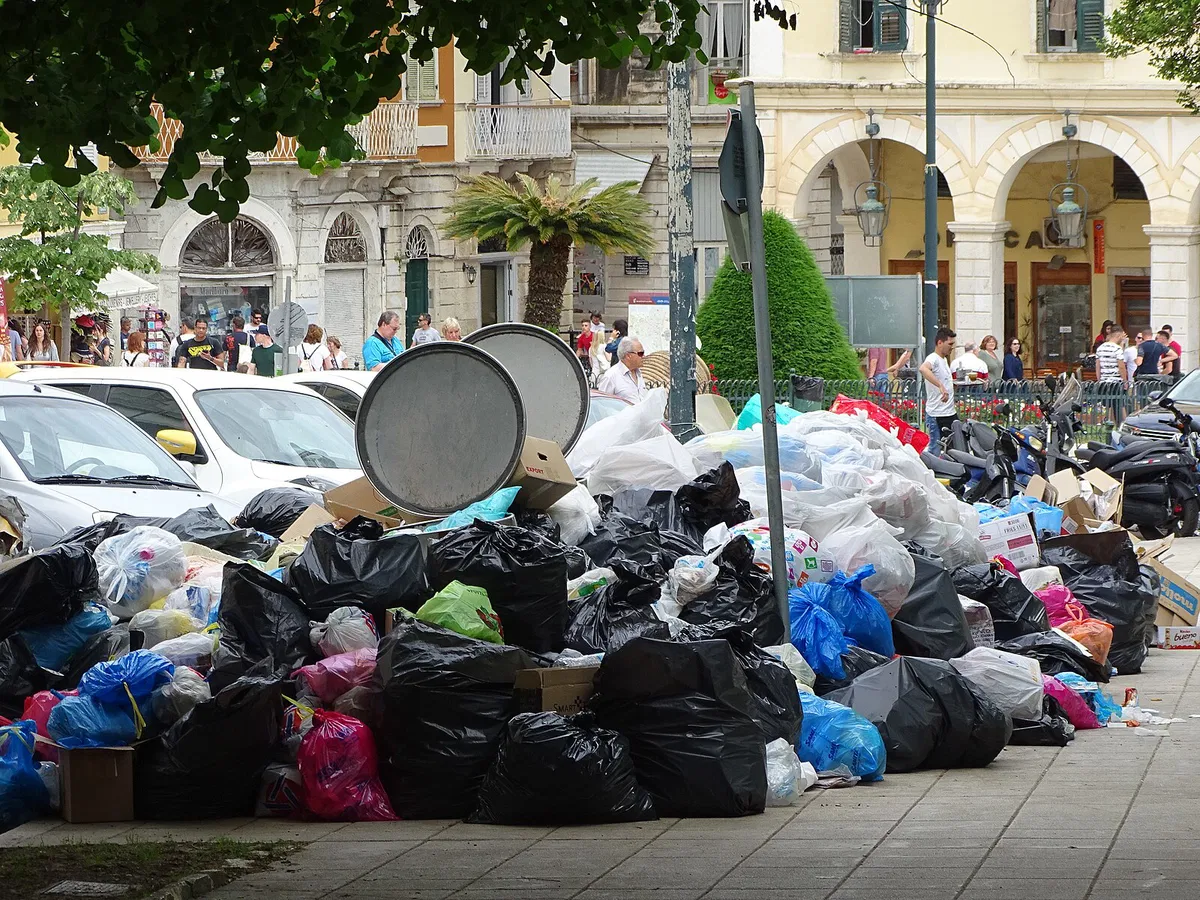Copyright euroweeklynews

THE COUNTRY of Greece has invested billions of euros into its waste management and recycling infrastructure: with awareness campaigns, new bins collecting different categories of waste, and widespread sorting information availability, Greece has been trying to get a leg up on its overwhelming waste problem. However, according to data presented by the Association of Recycling and Energy Recovery Industries and Enterprises (SEPAN), Greece continues to bury 79 per cent of its waste in landfills. Greece trailing far behind European peers in recycling Conversely, the recycling rates in the country barely reach 17 per cent, cementing it as one of the lowest in the whole of Europe. The problem is particularly egregious in the Greek capital of Athens; its role as a popular tourist destination makes it particularly susceptible to the waste crisis, as tourists will often see piles of garbage in the streets and add to them rather than throwing it out in a bin. Despite clearly labelled blue and green bins, and depositories where residents can recycle anything from paper to batteries, Greece still struggles to recycle even an acceptable amount of its waste. But why? The two main reasons for Greece’s overwhelming waste worries SEPAN president Lena Belsi explains that there are two primary reasons for this baffling phenomenon. “Burial is the easiest and cheapest solution in Greece,” she stated, referring to the landfills. The burial fee in Greece remains low, whereas in other European countries, the pricey fee is the main factor deterring them from simply burying much of their waste, working to increase the rates of recycling at the same time. In Greece, for example, the fee is €35 per tonne of waste, whereas in other countries, like Italy, the fee could exceed €100. According to Belsi, the other main reason Greece struggles to recycle has to do with the mentality of Greek citizens. “Citizens take their rubbish outside their house and then think it disappears … Landfilling garbage does great harm to the environment.” Indeed, the public disinterest in how garbage is processed and the harm that landfills do is one of the main underlying factors as to why Greece falls far behind its European peers. Enforcement, pricing signals, and education on waste management are all desperately needed. Attica, struggling under the pressure of a full landfill Belsi warns of an urgent need to modernise the infrastructure and incentivise recycling among the citizens, or the waste management issue could soon become unmanageable, particularly in Athens and in the municipality of Attica. The landfill site at Fili, which is more than two decades old, received approximately 90 per cent of Attica’s waste. It is currently at its limits, however, and is doing a great amount of harm to the surrounding environment. Attica recycles only about 15 per cent of its waste. “If the problem of Attica is not solved… it will not be enough to improve the overall picture of Greece,” said Belsi. Small islands making big steps in Greece Greece’s situation may not all be doom and gloom, however. The Greek island of Tilos has set a marvellous example for the possibilities of a green transition in the country. The island has reduced its waste to near zero through a special programme it launched, called “Just Go Zero.” The island, through sorting, reuse, and composting, has managed to reach recycling levels of more than 85 per cent. Though Tilos is the most successful Greek example in the recycling sphere, there are other islands that are making strong headway, in particular Antiparos, Alonissos, Paros, and Naxos. However, these individual islands, while they are making impressive strides, are not enough to offset Greece’s increasing waste issue, and more significant measures will need to be taken in order to reach a more manageable standard. A call on the government: stricter rules for recycling SEPAN is calling on the Greek government to make licensing and recycling workshops more accessible, simpler, and faster. Additionally, it is calling for stricter obligations for recycling for businesses and stricter sanctions on those who do not comply. The European Union has a goal to recycle at least 70 per cent of all its waste by the year 2030. Read more news from Greece here.



